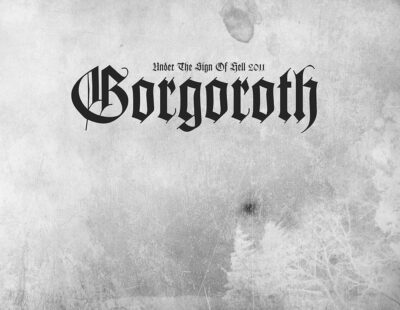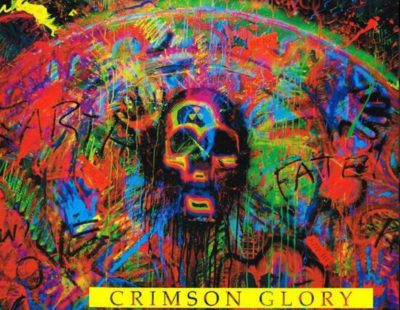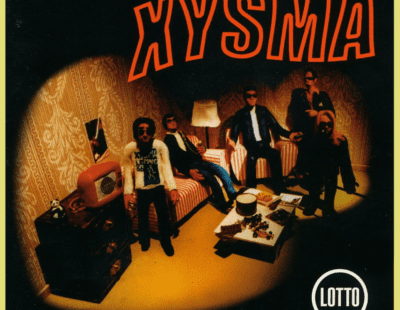
Here’s a brief glimpse into the way things work around here as they pertain to those moments when shitty tastes are needing to be justified. There are a bunch of albums that are to Decibel’s Hall of Fame as the Canadian Football Hall of Fame is to actual sports halls of fame that people wouldn’t feel completely underwhelmed, if not ripped off, after spending admission money. General Manager Mudrian emails out said list of records and a pack of us freelancing wolves kick, scream and fight about which ones we want to write about, hoping not to let on about how our feelings were hurt that Massive Killing Capacity made the cut whilst also airing our questionable tastes to the group, and eventually you, our gentle readership.
Admittedly, when the most recent list of “shitty taste” candidates made its way to my inbox, I was perplexed as to why Us and Them was not only included, but on the same list as Entombed’s Same Difference for chrissakes! Talk about your go-nowhere-do-nothing abominations (aside from “Addiction King” which is awesome, but only because it sounds like Therapy?). Anyhoo, whenever people ask me to rhyme off my favourite bands, I usually emergency brake the conversation with a slate of high-brow philosophizing about how, instead of having favourite bands, I have favourite albums. And, indeed, how if a band consistently releases top-notch recordings then I guess they theoretically become a favourite band. All the while the unlucky sap who posed the original question rolls their eyes and says, “Whatever Einstein, I just want to know about good music. Get to the fucking point and skip your manifesto bullshit.” My point here is two-fold: 1) for me, Godflesh is a band whose discography has been un-fuck-with-able from top to bottom; and 2) I didn’t realise that Us and Them was so maligned so as to require justification for its existence.
During the last half of the 90s, change was already afoot in the Godflesh camp. Previous full-length, 1996’s Songs of Love and Hate not only made studio use of an actual human being on drums (Bryan Mantia), but vocalist/guitarist/mastermind Justin Broadrick was open about his deepening enjoyment of EBM and electronic music and his incorporation of it into his long-standing industrial metal baby. No biggie because whether it was realised or admitted by the (wo)man on the street, Godflesh always had rhythmic roots in hip-hop and the application of transgressive side of ambient/drum ‘n’ bass/dub/techno and other forms of booty-shakin’ music seemed like a natural progression. Witness Broadrick’s association with Techno Animal, Curse of the Golden Vampire with Atari Teenage Riot’s Alec Empire, his own JK Flesh recordings (which didn’t see the light of day until almost a decade later) and the goddamn awesome mastery of GOD and the Possession and The Anatomy of Addiction albums. Then, there was Love and Hate in Dub which, as per the title, took Songs of Love and Hate and dubbed and clubbed it up. So, it was no surprise that those influences took deeper root and seeped into Godflesh’s soil in the ensuing years and on Us and Them, which was next up in the discography.
About eight seconds of research led me to a variety of previously unknown – to me, anyway – and unfriendly comments Broadrick himself made about Godflesh’s fifth album. He was unnecessarily harsh and hard on himself and pulled no punches in expressing hated for the album. And then there was this, from an interview conducted by my good friend and colleague, the late, great Adrian Bromley in Chronicles of Chaos: “What was going on at the time of my career with Godflesh was an identity crisis. I’d spent a lot of time making that album and it almost sounded like it was a remix of a remix album. There were so many changes going on and it was just a regurgitation of what I had done before. It was really fucking tiresome. I did a lot of that album by myself, in a very hermit-like state of mind. I was in a technologically obsessed state of mind and I lost sight of what Godflesh should be. The end result was something very eclectic and ambitious that didn’t even sound like a Godflesh album. That album is the sound of an identity crisis and we did it in public. I am glad it wasn’t promoted well.” Well, in the case of the dark cloud surrounding this album that I was unaware of, I’m glad I was able to get my hands on it when I did!
Admittedly, there are a couple moments on Us and Them that seem lazy and uninspired (“Whose Truth is Your Truth” and “Descent”) and the band’s leaning on technology in not using a live drummer, the deliberate lessening of the guitar’s role and making greater use of whatever it is people use to create electronic music led to a few starchy performances that don’t sound fully fleshed out (“Control Freak” and in the case of “Defiled” one of the worst entries into the Godflesh canon), but to say the entire album is an abominable abortion is being more than a little dramatic. If anything, it’s a display of the broad sweep of sound the band was capable of. And maybe this is just coming from one of the few Decibel contributors with any substantial amount of melanin coded into his DNA, but I enjoy the break beats, hip-hop patterns, low-end throb, hi-hat shimmying (computer-generated, as it may be) and when measures are led in with kick drum dyads.
The album kicks off with “I, Me, Mine” and a beat that sounds like it’s twisting James Brown’s “Funky Drummer” around a spire of melancholy as Broadrick’s throat suffers its usual abuse for your entertainment. G.C. Green’s bass displays a wide range of colour and whether it’s a guitar or keyboard creating those melodies in the chorus and bridge, the contribution is to a bleak sonic landscape. Depending on your allegiance to what the band created in the decade previous, a song like “Endgames” may seem like heresy, but to those cognizant that longevity usually means not playing the same song in the same style over and over and over again, you’ll hear the funky beat, washy wah-wah and vocal moan, but also notice dystopia still written all over the walls. And for those really missing the cold clang of the early years, “Witchhunt,” “Nail” and “Bittersweet” could have featured on Pure (or earlier) without an eye batted as they coalesce around Green’s bulldozer bass, that primitive-sounding drum machine and Broadrick’s staccato howl. Then, there was “The Internal” which stood out amongst the break beats and other dance-y ephemera as it opened new territories, acting as an elegiac, post-punk, shoegazing harbinger of what was to come on Hymns and the Jesu project.
It’s sometimes difficult to stomach when the creative force behind an album you enjoy demonstrates open disgust for it. Any discussion often spirals circuitously when you counter their self-loathing with genuine appreciation and it gets interpreted as palliative assurance. At the same flip of the coin, the artist is always their worst critic and sometimes the best move the consumer or fan can make is to offer a shoulder to bawl on before shutting the fuck up and enjoying said work in the privacy of his or her own guiltless closet. In the case of Us and Them, if you look beyond expectations and adherence to the whole “early years are the best years” belief, it quickly becomes obvious that throughout Godflesh’s history, they never sat still and even from the very start were atypical. Sure, Us and Them may be an outlier that deviates from the norm, but that’s to be expected considering who’s at the helm. It has its weakenesses, but not all fastballs get knocked out of the park. But, even after running a host of disparate influences up the flagpole, they still had to be ground through Broadrick’s filter. The result was that Godflesh magic still sparkled, despite whatever the creator himself might tell you.






